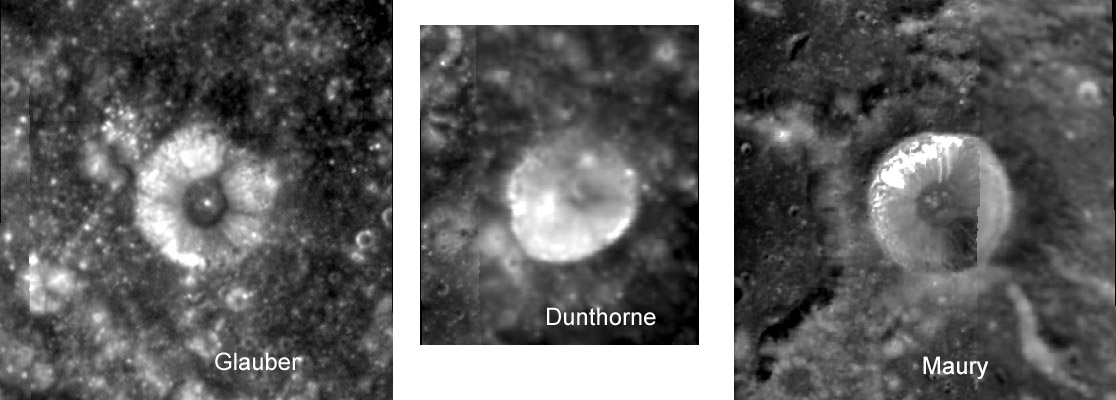
images from Clementine at USGS Map-A-Planet
My first scientific paper was on central peaks of lunar craters, and I haven’t lost my fascination with them yet. Studies of terrestrial impact craters demonstrate that central peaks are rebounds of deep target rocks. Rocks from a depth beneath the surface of roughly 1/10th a crater’s diameter are exposed in peaks. Thus, the central mountains on the floor of 93 km wide Copernicus are thought to come from about 6-10 km below the surface. When I originally studied peaks I used photographs from Kuiper’s 1960 Photographic Lunar Atlas. I discovered that peaks are rare in craters smaller than 10-15 km in diameter and become progressively more common in larger craters. I repeated this [http://articles.adsabs.harvard.edu//full/1978LPSC....9.3669W/000
3669.000.html study] in 1978 using Lunar Orbiter images and found that nearly all fresh craters larger than 35 km have central peaks but fewer than 4% of craters smaller than 5 km have peaks. The newer Clementine data with the high Sun imaging of much of the Moon suggests that central peaks may be more common in small craters than I thought in 1968 and in 1978. The 15 km wide farside crater Glauber has a perfect bright dot of a peak on its flat floor. So does the like-sized Dunthorne, and the floor of 17 km wide Maury is crowded with five rounded hills. At a crater diameter of 15 km, peaks are not completely rare but are less uncommon than I thought. The USGS Map-A-Planet site has been down the last couple of days so I can’t check Clementine, but it will be worthwhile to look for peaks in smaller craters.
Related Links:
My original article on central peaks was in the Communications of the Lunar and Planetary Lab and is not on line.
Yesterday's LPOD: Tributaries?
Tomorrow's LPOD: Striking Slips
COMMENTS?
Register, Log in, and join in the comments.



